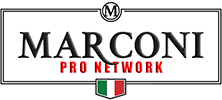Unlike the typical corporate structures seen in Western economies, South Korea has a unique economic system shaped by chaebols. These family-owned business conglomerates have a profound influence across various industries in the country. To fully understand South Korea’s business landscape, it’s crucial to grasp the composition and impact of these entities.

These chaebols are large, family-controlled business groups that operate in multiple industries. The term “chaebol” comes from Korean, meaning wealth (“chae”) and clan or group (“bol”). These companies have complex ownership structures, where the founding family retains significant control and have considerable influence over the group’s operations and strategic decisions.
Power And Diversification
These business groups are known for their dominance in South Korea’s economy. Over the years, they have maintained a strong presence in key sectors such as shipbuilding, electronics, automotive, and finance. They are characterized by their strategy of venturing into various industries while maintaining substantial market power within their existing businesses. This approach has made them influential players in both domestic and global economies.
Family Ownership And Control
A defining feature of these companies is the continuation of family ownership and control. In many instances, these are passed down through generations within the founding family. The ownership structure is often designed so that the founding family retains control over the group, even if they hold a relatively small share of total ownership. This ensures that the family’s influence on corporate decisions remains strong.
Government Influence And Criticism
The relationship between these companies and the South Korean government is complex. Historically, the government has implemented policies that supported the growth of these entities, viewing them as crucial part of economic development. However, they have also faced criticism for receiving preferential treatment and engaging in practices that affects the competition in the business. In recent years, there have been efforts to change the regulations and address concerns about transparency and fairness in governance.
Global Impact
Although rooted in the South Korean economy, their influence extends globally. Several of these groups have emerged as leading companies in the international market, often outperforming global competitors in various industries. Due to their presence, these business groups are considered key players in South Korea’s export-driven economy.
In summary, understanding these business groups is essential to understanding South Korea’s distinct business model. Their dominance, diversification strategies, intricate ownership structures, and ongoing evolution all highlight the significant role they play in shaping the nation’s economic scene.











